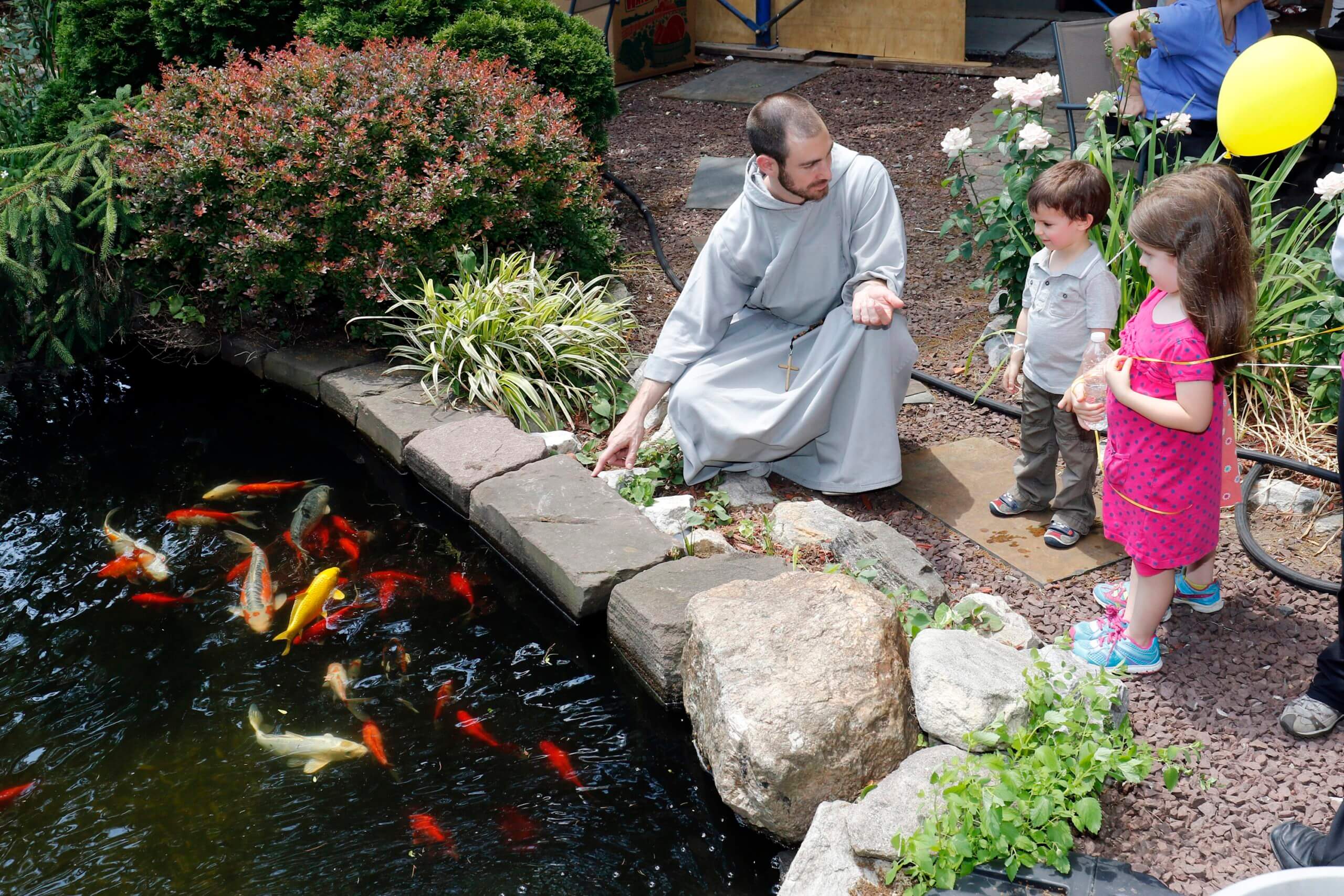
Insights from a Jewish philosopher and a koi pond
When a book lover is stuck at home for the better part of six months, it’s likely one of their favorite ways to pass time is to organize their books. Or maybe I should describe it as investigating their books because, inevitably, taking down a book from the shelf means stopping to leaf through and read, never knowing what you are going to find to distract you from organizing.
My unexpected find this morning was a paper copy of a column written many years ago, tucked into the pages of a well-worn copy of Jewish philosopher Martin Buber’s book, “I and Thou.”
My column, written about the experience of looking into a koi pond, seemed an odd choice for a book mark, but when I sat down at my desk to think about it, I began to remember the connection discovered so very long ago.
While visiting a garden store I was attracted to a lovely koi pond, and when I leaned over to get a better look at the koi, what I noticed most was the reflection of my face. I recalled the ancient myth of Narcissus, a young man who had gone to the stream to drink, only to fall in love with his own reflection in the water.
Every time he tried to drink, the image would be broken, as would be his heart at having lost the focus of his love. So Narcissus would not drink. Eventually he died of thirst – and self-love. Legend has it that the narcissus flower bloomed where he died.
Buber’s philosophy in the slim, poetic volume, “I and Thou,” suggests that human beings have two approaches to others, either as an I-Thou relationship, or an I-It relationship. My copy of the book is well-worn because I had to go back so many times to reread parts of it to understand what he was proposing.
This should not be surprising considering the depth of the questions Buber was asking: How do we find God? What is the meaning of life and personhood? There are no pat answers for these questions, but Buber did believe we should keep asking, and could gain insight through relationships.
While I still struggle with some of what Buber writes, I can say I learned enough to know that Narcissus would always have an I-It approach, treating others as objects to be used for benefit, as separate, different, while Jesus always had an I-Thou encounter with others. Buber would refer to Jesus as “him who, nailed life-long to the cross of the world, dares that monstrous thing – to love all men.”
Certainly, in our own daily lives, it is incredibly difficult to live up to the ideal Jesus set for us. We are only human, after all. But we are called to drink from the wellspring of love that God pours into the world, and interrupt the image of our own face that appears in the water so we don’t die of thirst – or self-love.
Through the words of Scripture, God teaches us that to really be free, to fully actualize our potential as human beings, we must live in authentic relationship with others; a relationship that allows one heart to be reflected in the heart of the other “as water reflects a face back to a face.”
Such authentic relationships, those “I-Thou” relationships, are the times, stressed Buber, when we encounter God, the “eternal Thou.”
That’s something I can understand.

